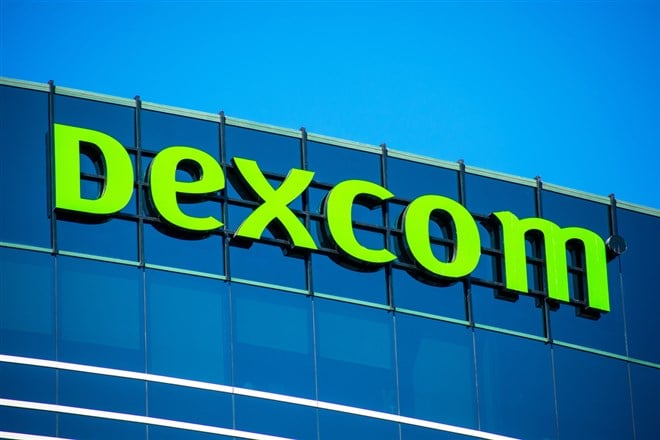
DexCom, Inc. (NASDAQ: DXCM) is a continuous glucose monitoring (CGM) company. In early December, they received approval from the United States Food and Drug Administration (FDA) for their new monitor, the G7. This device assists patients with Type 1 and Type 2 diabetes and gestational diabetes. Furthermore, the seemingly simple, all-in-one wearable device has been cleared for everyone from age two and up.
News of this approval (on December 8, 2022) sent DexCom stock soaring, jumping from $117.91 per share (close of day, December 7, 2022) to $123.70 by the next morning. At around only 5%, the jump may not seem like much, but it did help to bump the stock's value after slipping from a similar jump at the end of October when DXCM leaped up from $101.25 to around $121.
How the G7 Could Improve DexCom's Standing
The G7 glucose monitor is 60% smaller than the previous iteration but is also more accurate. In addition, it has more convenient options for onboarding, resulting in a more satisfying [mobile] app experience. Indeed, the monitor has a corresponding mobile app that stores your information, but it also has compatibility with various other wearable devices, including, for example, the Apple Watch.
More importantly, though, DexCom has moved forward to develop relationships with insulin pump makers to allow for more streamlined insulin delivery automation during blood sugar spikes. The long-term goal here is to integrate the G7 glucose monitor with existing [and future] insulin products. Whatever comes from these relationships will pit DexCom (and partners) against competitors like Abbott Laboratories (ABT) and Medtronic.
But what makes this development particularly attractive to investors is how easy it is for patients to receive the device. DexCom's devices are known to receive at least 97% reimbursement from private insurers. In addition, Medicaid is covered by at least 45 states and covered by Medicare across the country, benefiting roughly one-third of patients [with commercial insurance] paying zero out-of-pocket expenses; those fully covered will likely pay no more than $40 per month to use the CGM.
Why DexCom is Leaning on The G7 Glucose Monitor
The past year (or so) has not been easy for DexCom. First, the stock hit a lifetime high of $161.64 on November 12, 2021, instigating a new downward trend. Fortunately, shares started to rebound when they hit $68.81 in mid-June of 2022. Since then, the stock has been formidable and resilient, clawing its way back to its current value ($116.78).
Before this, DXCM steadily climbed to that all-time high in mid-November 2021. This success was short-lived, however, as the stock fell more than 5% in late July of this year on the heels of disappointing revenue, which failed to meet the analyst estimate of $698.6 million. In addition, while Q2 revenue was up 17% YoY, net income of $50.9 million (about $0.12 per diluted share) came in notably lower than the $78.4 million (about $0.19 per diluted share) from the same quarter the year prior.
It is imperative to note, however, that DexCom narrowed its full-year guidance range—from $2.82 billion - $2.94 billion to $2.86 billion - $2.91 billion. But even if they managed to stay in line, it would still likely be under the full-year analyst estimate of $2.92 billion.
A Look At DexCom's Future
The company was trading at more than 70% of its average trading volume a few days following the news, so they are building much interest and momentum. However, daily volume has since settled a little; while their next price target of $ 121.94 only represents a 4.4% upside, they project earnings growth of 36.71%. That would indicate that they still have a lot of room to grow; more importantly, analysts expect it.
And although the stock is still down -10.00% YTD, they are up nearly 4.2% over the last 30 days and almost 35.5% over the previous quarter. So growth may be slow now, but it could be much more substantial. More importantly, earnings per share (EPS) is up, with the most recent report showing that they beat the consensus estimate of $0.24 by almost a nickel, coming in at $0.28. One year ago, EPS was only $0.22, so things are improving. And this warrants the analyst rating Moderate Buy.





